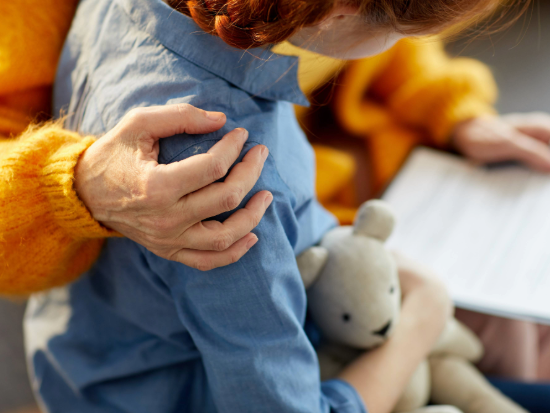 The UAB Child and Adolescent Psychiatry Interest Group (CAPIG), which was established in 2023, was recently awarded the 2024 O’Leary Award for Innovation in Psychiatry from the American Psychiatric Association Foundation (APAF). CAPIG is a student organization that seeks to shape the future of psychiatry training by focusing on education, professional development, and advocacy for its members.
The UAB Child and Adolescent Psychiatry Interest Group (CAPIG), which was established in 2023, was recently awarded the 2024 O’Leary Award for Innovation in Psychiatry from the American Psychiatric Association Foundation (APAF). CAPIG is a student organization that seeks to shape the future of psychiatry training by focusing on education, professional development, and advocacy for its members.
Blessing Falola, M.D., director of the Child and Adolescent Psychiatry Fellowship program in the UAB Department of Psychiatry and Behavioral Neurobiology, elaborated on the significance of the award and what it means for CAPIG.
What is the O'Leary Award for Innovation in Psychiatry, and why is it significant?
Falola: The award is named in honor of the late Paul O’Leary, M.D., who completed his training in the UAB Child and Adolescent Psychiatry Fellowship program. The award provides funding for projects that launch innovative ideas in the field of behavioral and mental health, including improving the efficiency of behavioral health care teams.
The $5,000 grant award is significant as it will provide programming support for CAPIG pipeline efforts in increasing awareness and interest in the child and adolescent psychiatry specialty to address the workforce shortage and increasing youth mental health crisis. For every 100,000 youths in Alabama, there are only nine child and adolescent psychiatrists. Furthermore, American Academy of Child and Adolescent Psychiatry data indicates that 55 out of 67 Alabama counties have no child and adolescent psychiatrists available. Yet, despite this profound shortage, child and adolescent psychiatry (CAP) fellowships often go unfilled, with as many as 40 such programs going unfilled in 2023 nationwide.
How has CAPIG displayed innovation in psychiatry since its founding?
Falola: CAPIG has provided a platform for learning, mentoring and networking with residents and medical students, with the goal for more physicians to join the specialty to meet this large and growing need for more CAP providers to increase access to care. We have hosted well-attended meetings by medical students and graduate medical trainees where up-to-date knowledge in the field was disseminated and have continued engagement to hone the interest of medical students and residents in child and adolescent psychiatry.
What does it mean to you and CAPIG to receive this award?
Falola: The CAPIG team and I are honored to receive this award. We hope that the resource of the award will further expand programming for the pipeline efforts of recruiting into the child and adolescent psychiatry specialty to address the workforce shortage and the national youth mental health crisis. We look forward to training leaders with excellence in clinical care, education, and research in the field of child and adolescent psychiatry who would serve as community and regional leaders advocating for the needs of children, adolescents, and their families.
Anything else you'd like to add?
Falola: It was a pleasure to work with Dr. Jordana Owens in submitting the application for this award. She serves as a resident CAPIG representative.